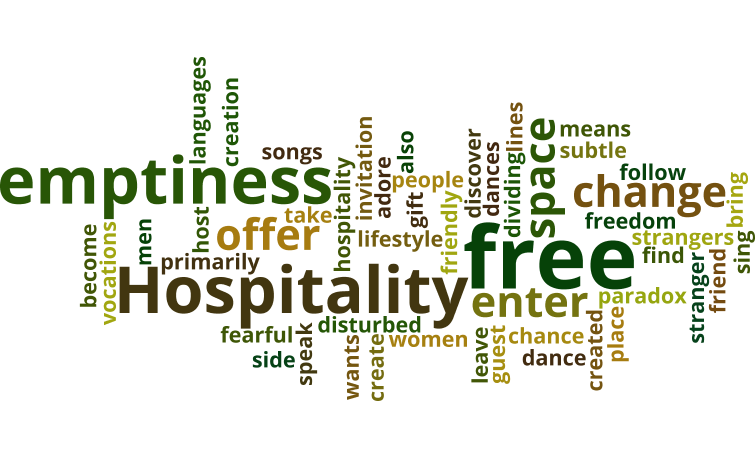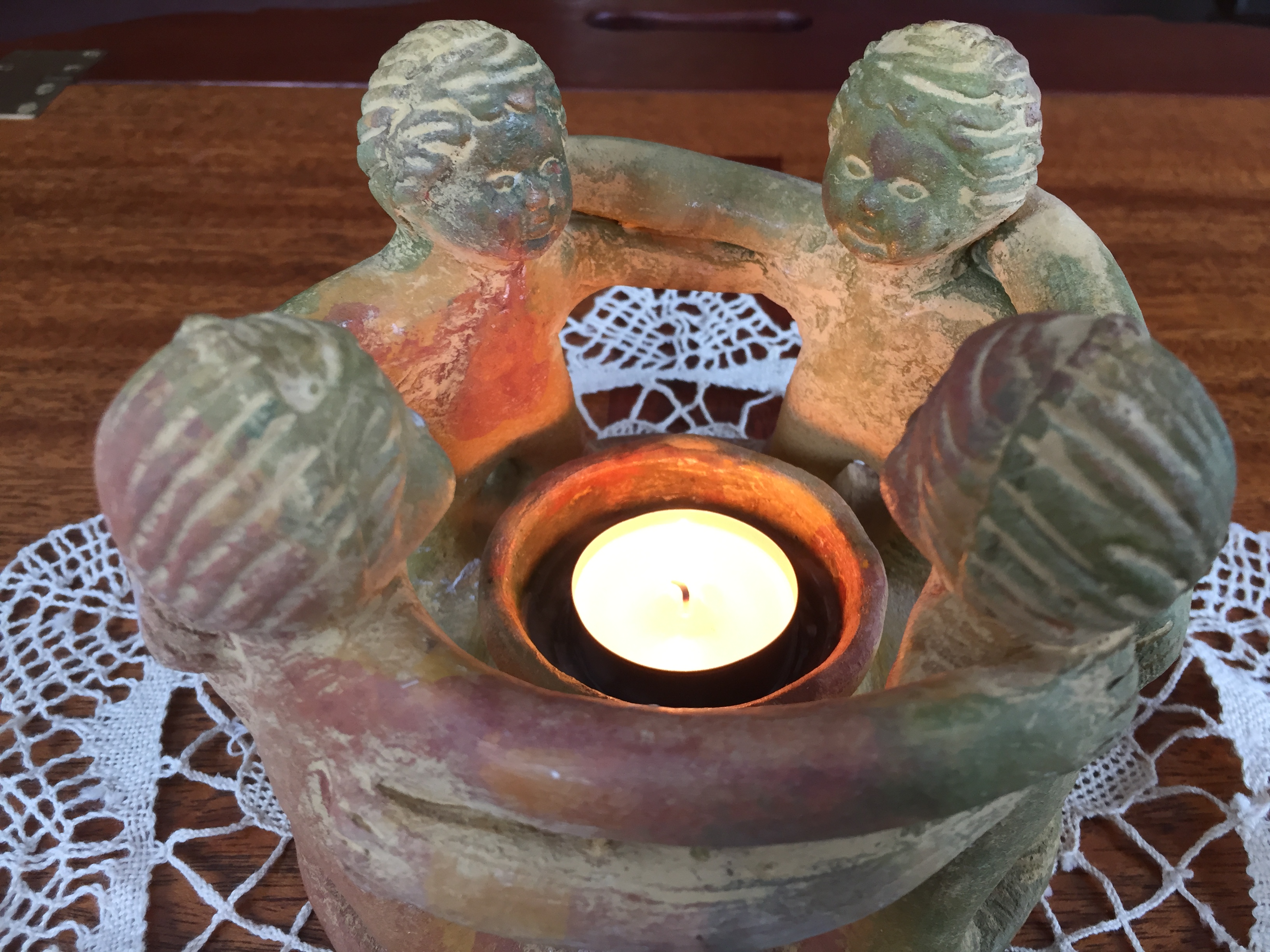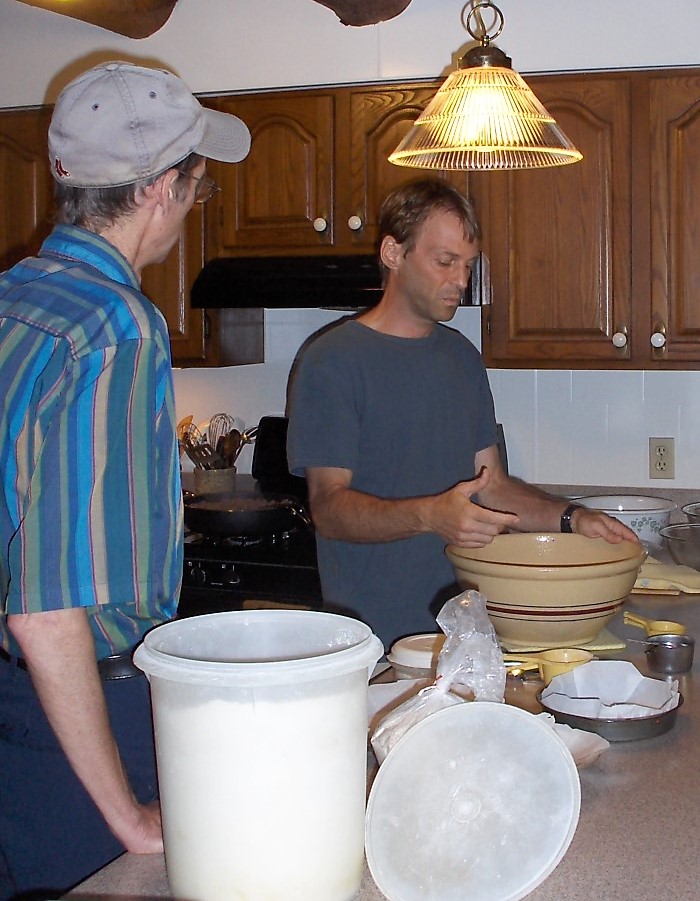“ For in Christ Jesus neither circumcision nor uncircumcision counts for anything; the only thing that counts is faith working through love.” Galatians 5:6
In the letter to the Galatians, Paul chastises the church for so easily falling away from the teaching they received that, in Christ, all have been made free of keeping the Jewish religious law. For, the Galatian gentiles have apparently embraced the practice of circumcision to prove that they “belong” to this new Jewish sect (that has not yet been named “Christianity”). Circumcision was the sign of inclusion for law-abiding Jews. Paul is eager to point out that there is a new way of living that does not require adherence to the law nor any external sign of inclusion. He calls it living “in the Spirit.” He criticizes the Galatians for starting with the Spirit (of Christ) and ending with the (Jewish) law, a backward movement. He reminds them that what “counts is faith working through love.” Neither faith nor love is concretely measurable. This leaves all judgment in God’s hands and frees followers of Christ to be open-hearted and open-handed toward all people, no matter their ethnic origin, their religious practice, or their gender. In Christ, he says, all are free.
Keeping Jewish law, particularly the religious practice of circumcision, is no longer much of an issue for Christians in the West. What issue or issues divide us? How would we write this admonition today so it would be an equivalent warning to us to avoid the same kind of misplaced energy the Galatians were giving to “keeping the law?”
Each one of us will probably have to examine our consciences to find the “law” we are “keeping” that creates for us a container of inclusion or a wall of exclusion. For it is this sin, of excluding (or preferentially including) another on the basis of some “law,” that is at the heart of the message to the Galatians. This issue also resonates with our current experience in North America. There are folks excluded because of their immigrant status, gender, relative power status, socio-economic state, religion, and even their “fit” into what is expected as “normal.” Of course, we all want others to be “like us” because that is more immediately comfortable than the stew of differences we find in this heavily populated globe where we rub shoulders with the “other” more than we might like.
But, is it possible that we exclude the very folks we should be welcoming because they don’t live life as we do? What if they practice a different religion? Does that make them excludable? As I read the Bible, I see that the better practice is to welcome and include rather than to exclude. Jesus admonishes in the gospels not to fear what others can do to us (Matthew 10:26-33 and Luke 12:2-7). But we are to major in “love for others” (John 15:9-17). We are more likely to be guilty of pushing someone out of God’s welcome than we would be “tainted” by their presence or practice when we welcome them in love. In another place, Jesus teaches,“Whoever is not against us is for us” (Mark 9:40).
When fear runs amok among us, we shout down demons and decry other practices as antithetical to our faith. But it really has nothing to do with faith. Faith is not visible nor measurable; it is not what we do, but how we are. Rather, as faith is worked out in loving others, it is recognized as fruitful. We can be haters, fearing others’ practices, or we can be lovers, welcoming differences and growing stronger in loving as God loves in the process. Protectionism breeds exclusion and expands the field of outsiders. Welcome invites inclusion and opens new avenues or new ways of apprehending the ultimately unknowable Mystery of God.
What I’m talking about is a radical hospitality that refuses self-protection or even the protection of some valued tradition, in favor of extending an open welcome. This is a hospitality that does not have rules but that allows each person to find the rule for their own life, trusting that God continues to work in the world and affirming that ultimately God is in charge of how the world is constituted.
Henri Nowuen, in his masterful meditation on transformation, Reaching Out, writes about this kind of hospitality.
“Hospitality means primarily the creation of a free space where the stranger can enter and become a friend … Hospitality is not to change people but to offer them space where change can take place. It is not to bring men and women over to our side, but to offer freedom not disturbed by dividing lines. . . . The paradox of hospitality is that it wants to create emptiness, not a fearful emptiness, but a friendly emptiness where strangers can enter and discover themselves as created free; free to sing their own songs, speak their own languages, dance their own dances; free also to leave and follow their own vocations. Hospitality is not a subtle invitation to adore the lifestyle of the host, but the gift of a chance for the guest to find his own.” — Henri Nouwen, Reaching Out, 51
I wonder if we have enough courage to weave this kind of hospitality into our daily lives? It is quite risky. It might even cost us friendships, the respect of family members, or our jobs to live this way. It will certainly be misunderstood or misconstrued. Jesus was maligned for healing, caring for the outcast, and loving everyone without exclusion. As we move toward Good Friday, we remember that this kind of hospitality could also have ultimate consequences. May we all aspire to give our lives to, and even for, loving as God loves, extending unlimited and freeing hospitality.
Naomi Wenger, March 2019








